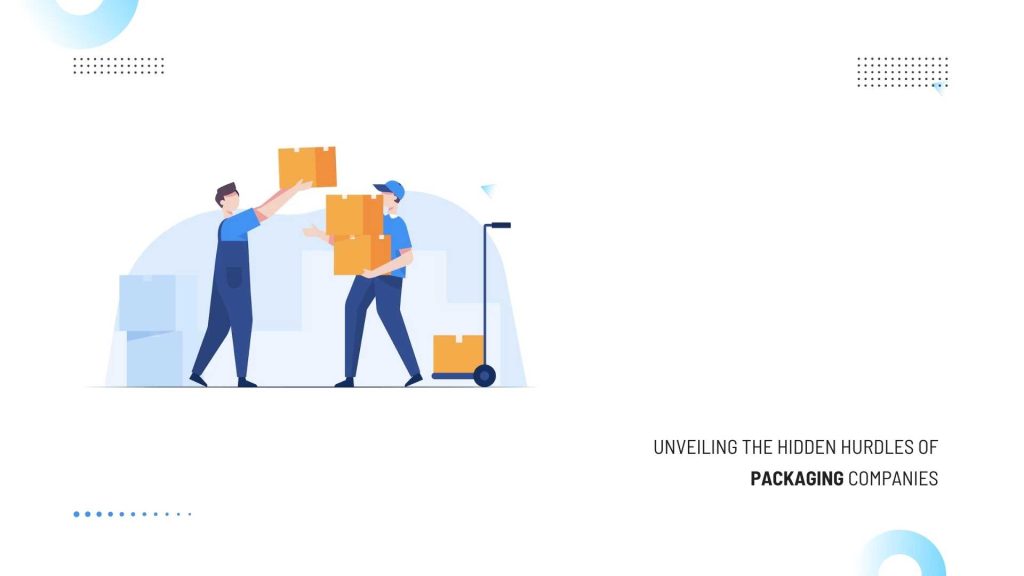The packaging industry, crucial for countless products across diverse markets, faces several pressing challenges. From sustainability to cost management, the industry must navigate complex demands to remain competitive and innovative. We will explore these issues and how integrating a robust ERP system can significantly improve operational efficiency and overall performance.
Challenges For Packaging Industry
Developing Sustainable Approach
One of the most influential challenges in the packaging industry is adopting sustainable practices. Consumers and regulators are increasingly demanding eco-friendly packaging solutions.
Companies must invest in research and development to create biodegradable, recyclable, or reusable packaging materials. This transition not only aligns with environmental goals but also meets consumer expectations for sustainability.
Lack of Commitment
Sustainability methods often suffer from a lack of commitment at various organizational levels. Without a unified approach, initiatives can fall short. It’s crucial for leadership to prioritize sustainability, setting clear goals and allocating resources to drive these initiatives. Building a culture that values and rewards sustainable practices can help overcome this challenge.
Reducing the Packaging, Shipping, and Delivery Costs
Reducing costs related to packaging, shipping, and delivery is a perennial challenge. Companies need to find ways to optimize their supply chain and logistics operations to minimize expenses.
This could involve adopting lean manufacturing principles, improving inventory management, and leveraging bulk purchasing to reduce material costs.
Aligning with Innovative Changes
The packaging industry is rapidly evolving with advancements in technology and materials. Companies must invest in the latest technologies, such as smart packaging, automation, and IoT integration, to enhance efficiency and meet changing market demands.
Raw Materials Shortage and The Rising Cost
Raw material shortages and rising costs are significant hurdles. Fluctuations in the availability and price of key materials like paper, plastic, and metals can disrupt production schedules and increase costs. Developing strong relationships with suppliers, diversifying the supply base, and exploring alternative materials can mitigate these risks.
Product Differentiating Through Packaging
In a crowded market, product differentiation through packaging is essential. Creative and unique packaging designs can enhance brand recognition and attract consumers.
Companies need to balance creativity with functionality, ensuring that packaging not only stands out but also protects the product and meets regulatory standards.
Lack of Advanced Technology
The adoption of advanced technology is often uneven across the industry. Some companies may lag in implementing new technologies due to high initial costs or resistance to change. Embracing advancements such as AI, machine learning, and advanced robotics can significantly improve operational efficiency and product quality.
Increase the Stacking Strength for Packaging
Improving the stacking strength of packaging is crucial for storage and transportation efficiency. Weak packaging can lead to product damage, increased waste, and higher costs. Investing in better materials and design techniques can enhance stacking strength, reducing the risk of damage and loss.
Lack Of Marketing To Increase Sales Of Custom Boxes
Effective marketing is essential to increase the sales of custom packaging solutions. Companies need to highlight the benefits and unique features of their custom boxes through targeted marketing campaigns. Utilizing digital marketing strategies, including social media marketing, can assist reach a broader audience and drive sales.
Key Features of ERP for Improving Packaging Efficiency
Streamlined Supply Chain
ERP systems can streamline the supply chain operations by delivering real-time visibility into inventory stocks, supplier performance, and production schedules. This helps reduce lead times, minimize stockouts, and assure accurate delivery of raw material and finished products.
More Efficient Operations
The ERP system can enhance operational efficiency through routine task automation and improved data accuracy. This leads to reduced downtime, optimized resource utilization, and improved production planning, ultimately lowering operational costs.
Improved Quality Control
ERP systems facilitate better quality control by integrating quality management processes into the production workflow. This ensures that quality checks are conducted at every stage of production, reducing defects and ensuring that the final product meets all regulatory and customer requirements.
Enhanced Financial Management
With integrated financial management, ERP systems provide accurate and timely financial data. This helps in better budgeting, cost control, and financial reporting, enabling businesses to improve profitability.
CRM and Sales Integration
ERP systems with integrated CRM and sales modules help manage customer relationships more effectively. These integrations deliver valuable insights into customer preferences, allowing for more targeted marketing and expanded customer services.
Conclusion
Acumatica Cloud-Based ERP will revolutionize the packaging industry by streamlining processes, enhancing collaboration, and promoting efficiency. Acumatica ERP enables companies to overcome industry challenges, drive innovation, and achieve sustainable growth. By integrating advanced technology and fostering a culture of continuous improvement, the packaging industry can meet the demands of today and tomorrow.

Vijay comes with a vast experience in ERP and enterprise solutions space with about 20 years of experience in various packaged application like Acumatica, SAP, Orion, Salesforce.com, SugarCRM and, SalesLogix.

